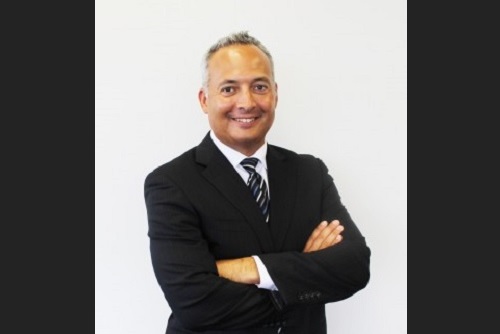In Robert Luft's view, the notion of valuable advice should figure more in a crucial debate

Robert Luft, portfolio manager and founder of Luft Financial at HollisWealth, tells Wealth Professional his thoughts on the value of advice, how it should have more bearing on the debate surrounding fees, and the business model he predicts will become more significant in the future.
Which aspect of your service have your clients found to be most valuable?
In meeting with clients, we offer a very consultative approach. Generally, clients will meet with us at least annually to discuss their overall financial plans, or they will contact us by phone or email as issues arise. By consultative, I also mean process-driven: all financial data is updated through our Naviplan platform for each client.
This process allows the client to drive the discussion to the goals they are concerned about at the time, then follow that narrative to solutions based on those goals. Their meetings are then not wasted with financial jargon and complex portfolio discussions. This focus on tax, retirement, and moreover, goals-based planning is what they find most useful.
What industry trends or regulations do you think have most greatly impacted clients’ perception of financial advice?
There is a strong focus on fees and fee disclosure by regulators that is impacting perception. The idea that somehow cheaper is better has been spurred on by non-disclosure in the past and unscrupulous advisors taking advantage of the trust of clients.
Value is sometimes hard to quantify. When does advice have value? If nothing else, but when the client feels it is valuable. Why do some lawyers charge $1,000 per hour and some only $100 per hour? Is the lawyer billing $100 per hour better because she is lower-cost? In fact, most advice-centric professions charge much more as their advice becomes more valuable: Senior accountants, partners at law firms, surgeons, etc.
The reason there is such an extreme process focused on investment fees is because there is such a discrepancy in the advice being delivered — from the DSC salesperson who only discusses product at a meeting, to the fee-for-service, high-net-worth family office that acts as the client’s CFO.
We must speak more to the value offered, not simply the price. Clients must be educated to understand what they pay, and then demand service for that fee, or not. Simple product selection through a basket of ETFs with no advice is something that has been commoditized and can be performed by an algorithm. If ETF asset allocation is your value differentiator, you are in trouble.
Can you think of any financial products or services that will become more important to clients in the future? How will these become more significant?
I believe that clients will demand a team that looks after their financial picture much like the high-net-worth family office structures in the US. The only difference will be that services will vary based on the level of assets you have.
The difference these offices charge versus a portfolio of passive ETFS will come down to how well they can differentiate themselves on the advice and experience delivery. Think of it as concierge finance versus cookie-cutter: it won’t just be for the ultra-high-net-worth anymore.
The time will come when people will no longer be satisfied with being referred to separate specialists for the different financial services they require. Instead, they’ll look for teams that, due to their size, can give them direct access to the tax, legal, planning, and portfolio management they need, all under one roof.
Related stories:
The true value of practice management
The need for clarity
Which aspect of your service have your clients found to be most valuable?
In meeting with clients, we offer a very consultative approach. Generally, clients will meet with us at least annually to discuss their overall financial plans, or they will contact us by phone or email as issues arise. By consultative, I also mean process-driven: all financial data is updated through our Naviplan platform for each client.
This process allows the client to drive the discussion to the goals they are concerned about at the time, then follow that narrative to solutions based on those goals. Their meetings are then not wasted with financial jargon and complex portfolio discussions. This focus on tax, retirement, and moreover, goals-based planning is what they find most useful.
What industry trends or regulations do you think have most greatly impacted clients’ perception of financial advice?
There is a strong focus on fees and fee disclosure by regulators that is impacting perception. The idea that somehow cheaper is better has been spurred on by non-disclosure in the past and unscrupulous advisors taking advantage of the trust of clients.
Value is sometimes hard to quantify. When does advice have value? If nothing else, but when the client feels it is valuable. Why do some lawyers charge $1,000 per hour and some only $100 per hour? Is the lawyer billing $100 per hour better because she is lower-cost? In fact, most advice-centric professions charge much more as their advice becomes more valuable: Senior accountants, partners at law firms, surgeons, etc.
The reason there is such an extreme process focused on investment fees is because there is such a discrepancy in the advice being delivered — from the DSC salesperson who only discusses product at a meeting, to the fee-for-service, high-net-worth family office that acts as the client’s CFO.
We must speak more to the value offered, not simply the price. Clients must be educated to understand what they pay, and then demand service for that fee, or not. Simple product selection through a basket of ETFs with no advice is something that has been commoditized and can be performed by an algorithm. If ETF asset allocation is your value differentiator, you are in trouble.
Can you think of any financial products or services that will become more important to clients in the future? How will these become more significant?
I believe that clients will demand a team that looks after their financial picture much like the high-net-worth family office structures in the US. The only difference will be that services will vary based on the level of assets you have.
The difference these offices charge versus a portfolio of passive ETFS will come down to how well they can differentiate themselves on the advice and experience delivery. Think of it as concierge finance versus cookie-cutter: it won’t just be for the ultra-high-net-worth anymore.
The time will come when people will no longer be satisfied with being referred to separate specialists for the different financial services they require. Instead, they’ll look for teams that, due to their size, can give them direct access to the tax, legal, planning, and portfolio management they need, all under one roof.
Related stories:
The true value of practice management
The need for clarity



